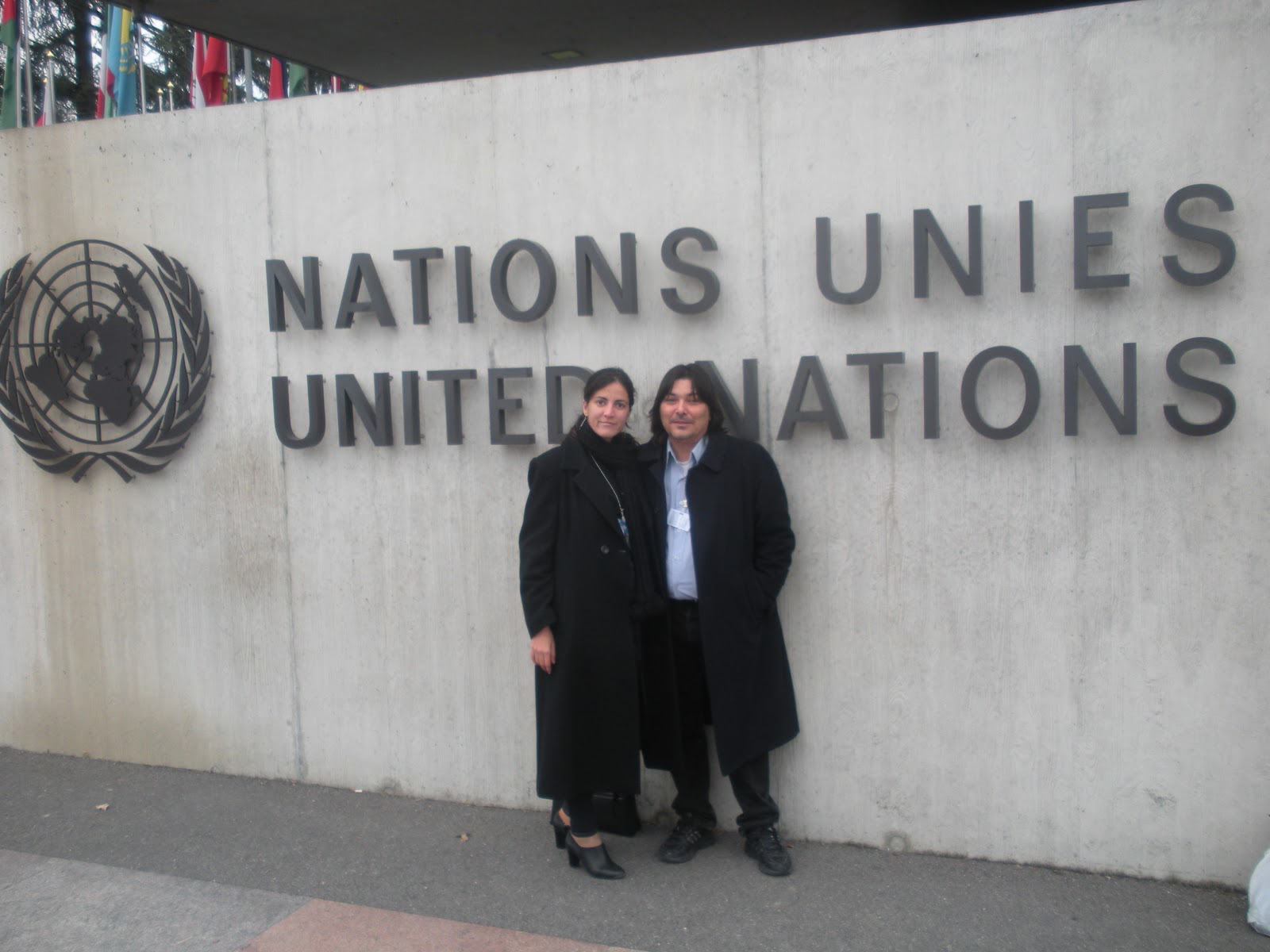Mr. Payá, who pioneered the Varela Project, a petition drive in 2002 seeking the guarantee of political freedom in Cuba, was killed in a car wreck July 22, along with a youth activist, Harold Cepero. The driver of the vehicle, Ángel Carromero, a Spaniard, was convicted and imprisoned on charges of vehicular homicide; in December, he was released to Spain. He told us in an interview published on the opposite page last week that the car carrying Mr. Payá was rammed from behind by a vehicle with government license plates. His recollections suggest that Mr. Payá died not from reckless driving but from a purposeful attempt to silence him — forever.
 |
| Rosa Maria Payá and Regis Iglesias |
On Wednesday, his daughter, Rosa Maria Payá, appeared before the U.N. Human Rights Council in Geneva. Speaking for the group U. N. Watch, Ms. Payá presented an appeal signed by 46 activists and political leaders from around the world, urging the United Nations to launch an international and independent investigation into Mr. Payá’s death. The signatories declared, “Mounting and credible allegations that the Cuban government may have been complicit in the murder of its most prominent critic, a leading figure in the human rights world, cannot go ignored by the international community.”
The Varela Project was summarily and arbitrarily crushed by Fidel Castro. Ms. Payá told the council that Cuban authorities imprisoned the majority of its leaders. She said that Yosvani Melcho Rodriguez, 30, has spent three years in prison as punishment for his mother being a member of the movement with Mr. Payá.
Ms. Payá was interrupted in Geneva by the Cuban representative, who accused her of being a “mercenary who has dared to come to this room.” His attempt to silence her drew support from China, Russia, Pakistan, Nicaragua and Belarus. The U.S. representative spoke up for her right to address the group. She was then allowed to finish.
After Mr. Payá’s death, the White House paid tribute to him, saying, “We continue to be inspired by Payá’s vision and dedication to a better future for Cuba, and believe that his example and moral leadership will endure.” When pro-democracy activists were arrested and beaten at his funeral, the White House again spoke up. But in the past week, since Mr. Carromero’s interview was published, the administration has not uttered a word. What if it had been Sakharov, Aung San Suu Kyi, Mandela or Havel who was run off the road? Would it have said nothing? At this critical juncture, with new information at hand, the United States ought not to be complicit in silence about who killed Oswaldo Payá.
Ángel Carromero speaks out about the crash that killed Payá






No comments:
Post a Comment